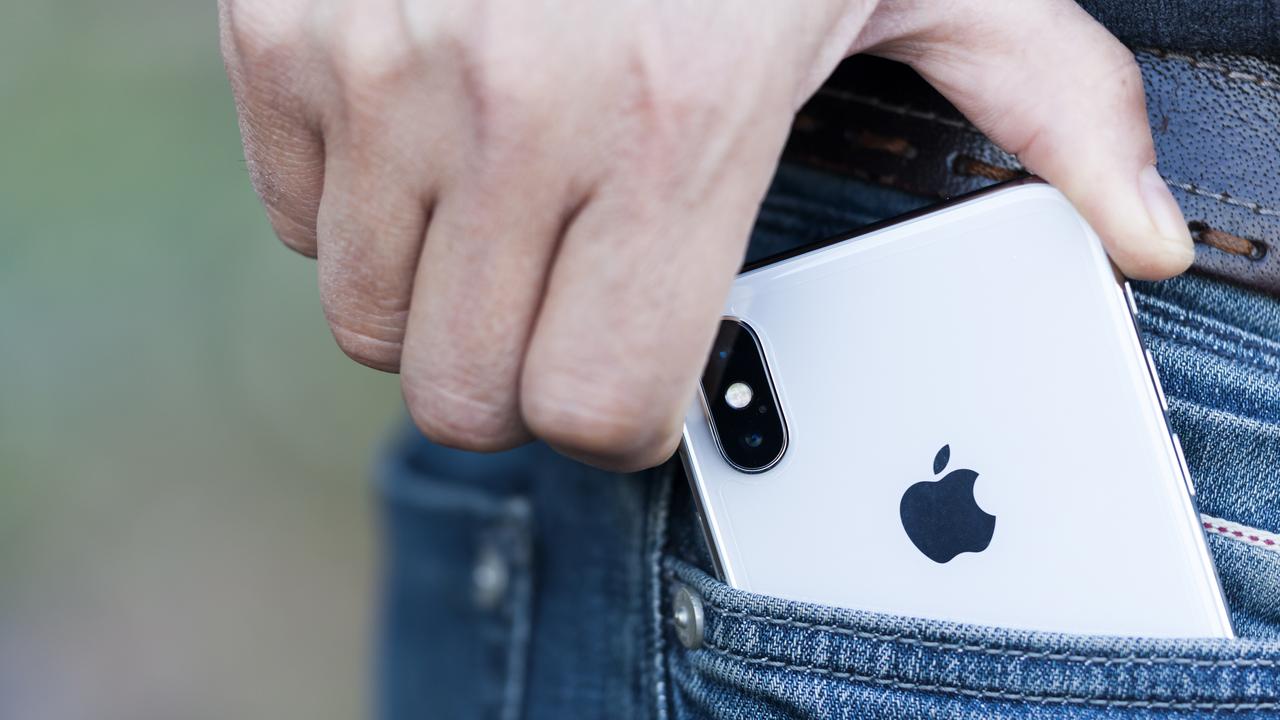Apple iPhones are ‘predictive of wealth’, new study finds
FORGET yachts, sports cars and fur coats — the biggest sign you’re a high roller could actually be in your hands right now.
IF YOU are one of the millions of Aussies who own an iPhone, congratulations — you’re officially wealthy.
That’s according to new research published recently by the National Bureau of Economic Research in the US, which worked with the University of Chicago to discover how our lifestyle relates to our income.
Researchers Marianne Bertrand and Emir Kamenica looked at study participants’ media consumption, consumer behaviour, time use or social attitudes over a number of years, and found 69.1 per cent of people who owned an iPhone in 2016 were “predictive of having a high income”.
• Your biggest fear set to disappear
• ‘None of mother-in-law’s business’
• Woolies warns of 60 per cent price hike
“High income” was defined as being in the top income quartile for a participant’s particular lifestyle and household type, such as singles, families and couples without children.
iPad ownership was the second biggest indicator of wealth, followed by US broadband provider Verizon Wireless, and then Android phones.
Bizarrely, those who use Kikkoman-brand soy sauce were also found to be wealthy, followed by HP printers and faxes, the AT&T phone network, Samsung TVs, Cascade Complete dishwasher detergent and Ziploc bags.
“Knowing whether someone owns an iPad in 2016 allows us to guess correctly whether the person is in the top or bottom income quartile 69 per cent of the time,” the researchers wrote. “Across all years in our data, no individual brand is as predictive of being high-income as owning an Apple iPhone in 2016.”

The study also found certain behaviours and products were also closely related to wealth, including travelling within the US, owning a passport and having Bluetooth in a vehicle.
Heated car seats were another big indicator, followed by the ownership of dishwasher detergents and dishwashers in general, belonging to a frequent flyer club and travelling outside the US, as well as indulging in internet shopping for both goods and plane tickets.
The study also compared the top indicators of wealth in 2016 to those from 2004 and 1992, which offered some fascinating insights — and proving that time (and tastes) have changed over the years.
For example, in 2004, buying a new car and using Land O’Lakes regular butter implied you were well off, while in 1992 it was owning an automatic dishwasher and buying Grey Poupon Dijon mustard that meant you were among the elite.



